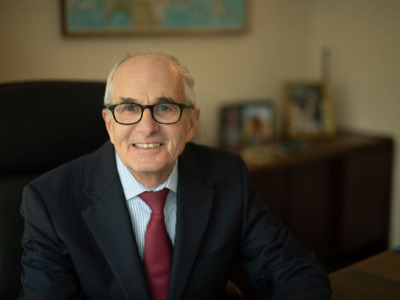This week the G7 issued the following statement:
“We, the G7 Foreign Ministers of Canada, France, Germany, Italy, Japan, the United Kingdom, the United States of America, and the High Representative of the European Union, are united in our condemnation in the strongest possible terms of Russia’s war of aggression against Ukraine and its continued violations of Ukraine’s sovereignty, territorial integrity, and independence.
“President Putin’s efforts to incorporate Donetsk, Luhansk, Kherson and Zaporizhzhia regions into the territory of the Russian Federation constitute a new low point in Russia’s blatant flouting of international law, and yet another example of Russia’s unacceptable violations of Ukraine’s sovereignty, the UN Charter, and the commonly agreed principles and commitments of the Helsinki Final Act and the Paris Charter.”
The United States, for its part, has accused Russia of crimes against humanity.
“In the case of Russia’s actions in Ukraine, we have examined the evidence, we know the legal standards, and there is no doubt: These are crimes against humanity,” Vice President Kamala Harris said last week.
The crimes against humanity are not limited to Ukraine, however. Cutting off Africa and the Middle East from Ukrainian grain is a deliberate attempt to starve those most at risk around the world.
According to the Foreign Agriculture Service at USDA “Ukraine is one of the world’s top agriculture producers and exports and plays a critical role in supplying oilseeds and grains to the global market.” In 2021, agriculture exports of $27.8 billion accounted for 41% of the country’s $68 billion in overall exports. Corn, wheat, sunflower oil, sunflower meal, and barley all were major exports and used by the World Food Program (WFP) to feed those most at risk of starvation.
The latest development is that Russia is balking at extending the UN-backed initiative to allow Ukraine to export grain from ports blockaded by Russia.
“It is critical” that we extend the agreement according to WFP Director David Beasley. “With all the crisis we are facing around the world with climate change, droughts, flash floods, we can afford the Black Sea Grain initiate to fall through.”
Don’t miss a beat! It’s easy to sign up for a FREE month of Agri-Pulse news! For the latest on what’s happening in Washington, D.C. and around the country in agriculture, just click here.
The UN agreement is up for renewal in March. Much of the world relies on that UN agreement which allows for the export of Ukrainian grain yet Russian is holding the agreement hostage.
For centuries “Ukraine has been known as the breadbasket for Europe.” It is home to a quarter of the world’s best soil, according to Roman Leshchenko, the Ukrainian Minister of Agrarian Policy. The country has around 42 million hectares of cultivated land (approximately 100 million acres).
Ukraine is the second largest country in Europe, if you include Russia. It is 1.5 times bigger than California and almost the size of Texas. Its location makes it the most critical supplier to both the Middle East and Africa.
Shutting down the Ukrainian ports would be catastrophic, especially in Africa where fifty million people are facing famine and starvation, according to Beasley.
According to Politico, “The year ahead will be the biggest test, according to U.S. and other Western officials, as they argue Russia is continuing to weaponize food, holding back some of its fertilizer exports while cutting off Ukraine, a major grain and food exporter, from its normal global trading routes — most notably to wide swaths of Africa and the Middle East.”
David Beasley’s term as Executive Director of WFP expires in April. Cindy McCain, the current U.S. Ambassador to the UN food agencies is one of the contenders to replace Beasley. Former Ambassador David Lane is also in contention for the position. U.N. Secretary General Antonia Guterres may announce Beasley’s successor at the next board meeting on Monday, February 27.
Marshall Matz is Senior Counsel at OFW Law and the founder of the World Food Program—USA.
For more ag news and opinions, visit Agri-Pulse.com.


